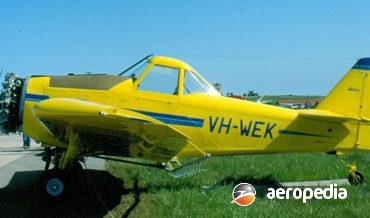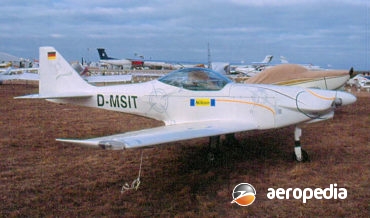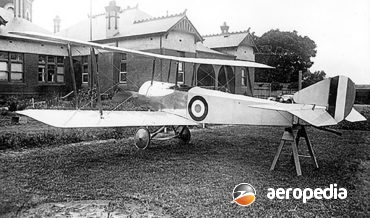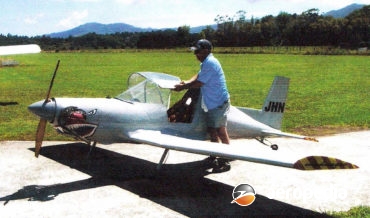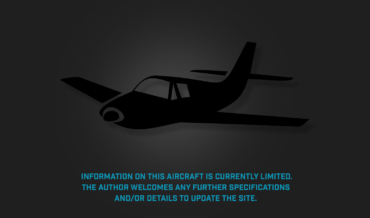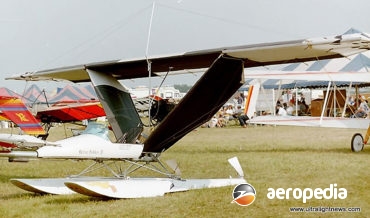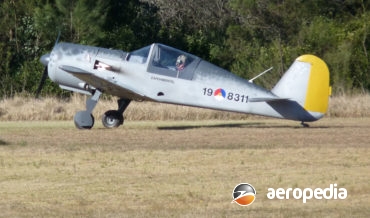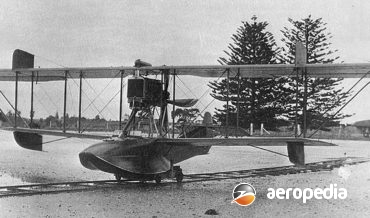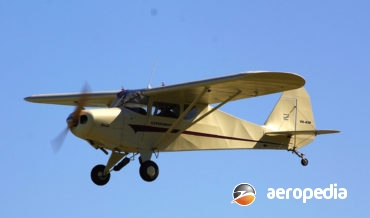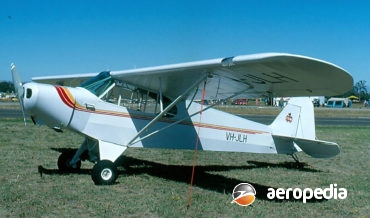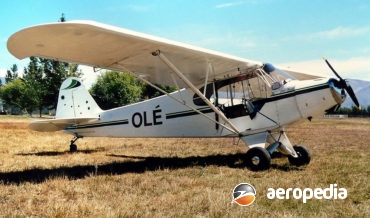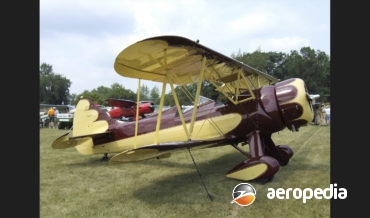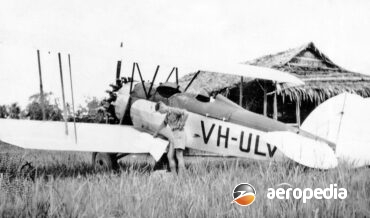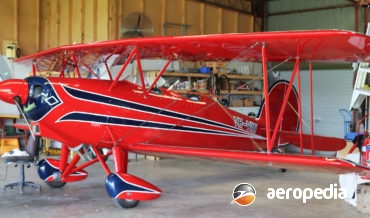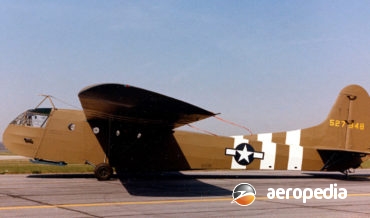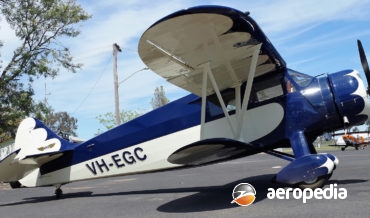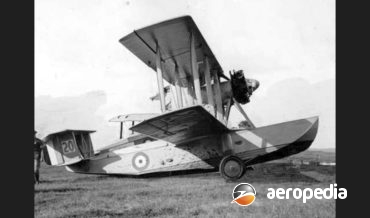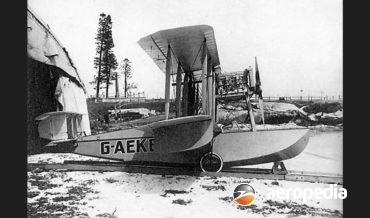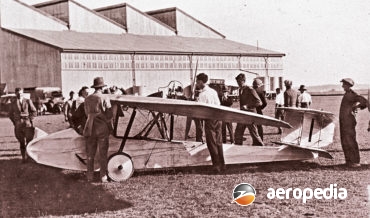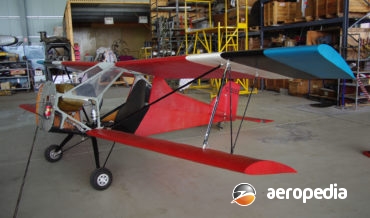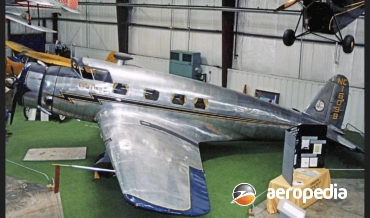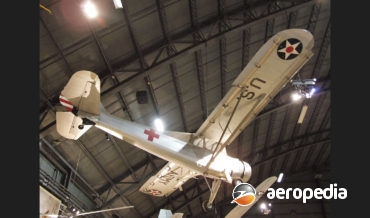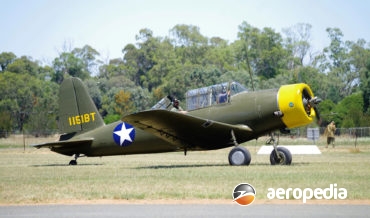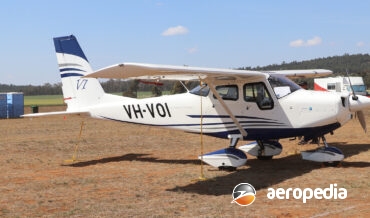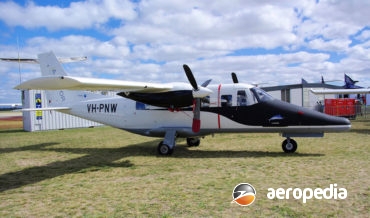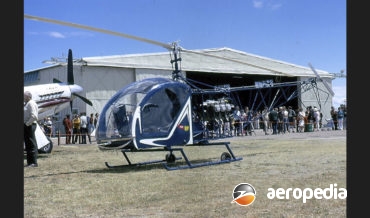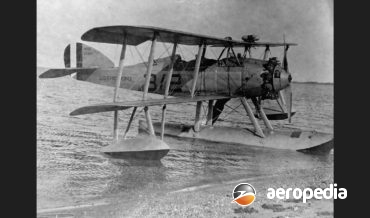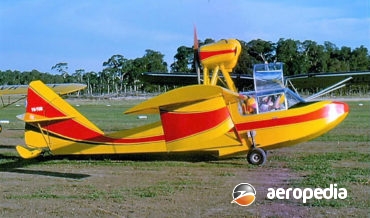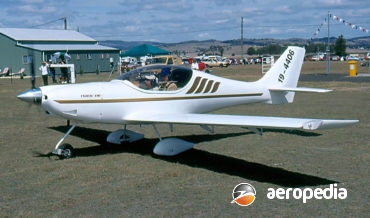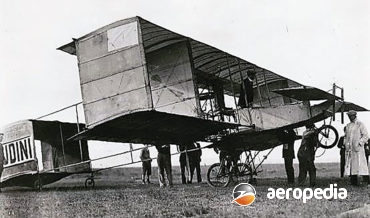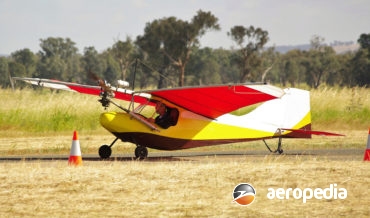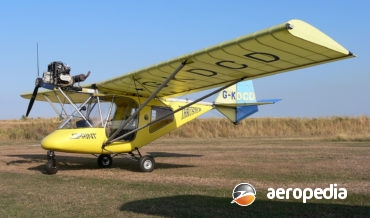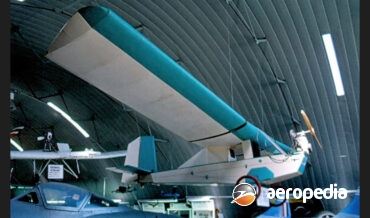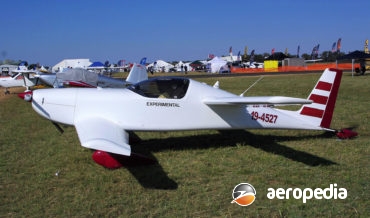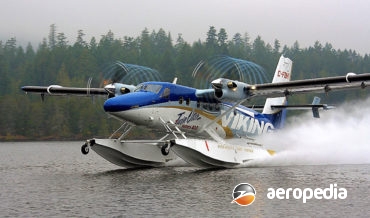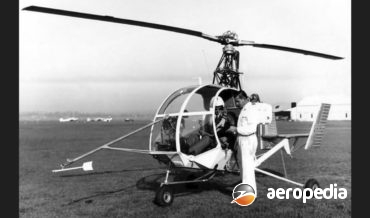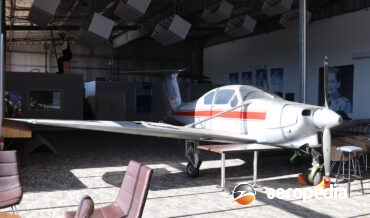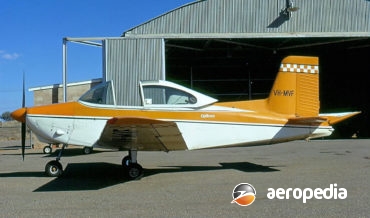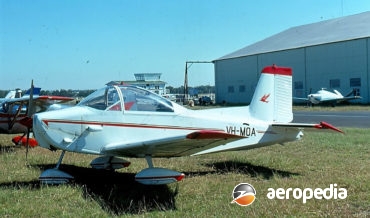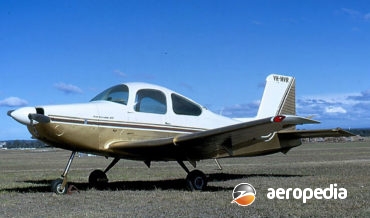All Contents
Contents
The 620A is an agricultural aircraft produced by the Weatherly Aviation Co of Lincoln, California, and is one in a series of aircraft produced in small volume by the company for this role.
David C. Eyre
- May 8, 2019
The Fascination D4 is a two-seat side-by-side light kit-built aircraft produced by WD Flugzeugbau of Heubach, Germany.
David C. Eyre
- May 8, 2019
Basil George Watson was born in Bendigo, VIC on 12 October 1894 and was the son of a mining investor.
David C. Eyre
- May 8, 2019
The Watson Windwagon light aircraft were developed from the Parker Teenie Two series which was designed by Calvin Parker and built in some numbers around the world.
David C. Eyre
- May 8, 2019
The Magpie was a light aircraft built by W F Watkins at Cootamundra.
David C. Eyre
- May 8, 2019
The Tomcat was an ultra-light design of canard configuration designed and produced in the United Kingdom by Waspair and later produced in the United States by Midwest Microlites.
David C. Eyre
- May 8, 2019
War Aircraft Replicas of Tampa, Florida, was formed to design and market plans and kits of half-scale (50%) replicas of famous aircraft of World War II and since 1974 a number of designs have been made available to the amateur builder, types including the Sea Fury, A6M5 Zero, F4U Corsair,
David C. Eyre
- May 8, 2019
The brothers Leo Austin and Vivian Claude Walsh were interested in the aeroplane from about 1910 and at that time purchased materials and built an aircraft which was completed and flown in 1911 but the aircraft was destroyed in an accident.
David C. Eyre
- May 8, 2019
The Wag-A-Bond Traveller is a replica of the Piper PA-15 Vagabond series but much improved, with extra strength, comfort and performance, using modern construction methods and materials, and in recent years has been made available to amateur constructors in kit form by the manufacturers, Wag-Aero Group of Lyons, Wisconsin, USA.
David C. Eyre
- May 8, 2019
The Sportsman is a light sporting aircraft produced in kit form by the Wag Aero Group at Lyons in Wisconsin.
David C. Eyre
- May 8, 2019
The Wag Aero Cuby is a redesign of the well known Piper Cub by the Wag-Aero group of Lyons, Wisconsin, using modern construction methods and materials, being aimed at the home-built market.
David C. Eyre
- May 8, 2019
In November 1935 the Waco YPF-6 was certificated (ATC-586) in the United States.
David C. Eyre
- May 8, 2019
The Waco 10 was launched in 1927 and certificated (ATC-13) in October that year. It was much improved on the Model 9, and was similar in layout and dimensions.
David C. Eyre
- May 8, 2019
The 2-T-1 light sports trainer biplane was introduced to the aviation market in 1929 by the Great Lakes Aircraft Corp of Cleveland Ohio, the prototype flying during that year.
David C. Eyre
- May 8, 2019
The Hadrian was designed by the Weaver Aircraft Company (Waco) to meet a requirement of the United State Army.
David C. Eyre
- May 8, 2019
The Waco series of touring biplanes was first released in 1931 by the Weaver Aircraft Co (WACO).
David C. Eyre
- May 8, 2019
The Widgeon II was a re-design of the Widgeon I, being described as benefiting from the experience gained in the construction and operation of the earlier aeroplane.
David C. Eyre
- May 8, 2019
The Widgeon I was a single-engine amphibious biplane constructed with a wooden hull (Queensland maple) designed by Sqdn Ldr L J Wackett in 1923 and built by the RAAF Experimental Section at Randwick.
David C. Eyre
- May 8, 2019
The Warbler was a parasol wing monoplane with internal bracing designed by Sqdn Ldr L J R Wackett, an officer in the RAAF at the time in charge of the Government Experimental Aeroplane Factory in Sydney.
David C. Eyre
- May 8, 2019
The WAACO Staggerbipe was first produced in the early 1980s by the West Australian Aircraft Company of Box Hill, VIC as a single-seat light sporting biplane and was made available in kit form for the amateur constructor.
David C. Eyre
- May 8, 2019
The prototype V.1 (NR12293) with a 531-kw (712-hp) Wright R-1820-F2 engine was first flown on 19 February 1933 and production totalled 26 aircraft.
David C. Eyre
- May 8, 2019
In 1940, in response to a US Army requirement for a two-seat unarmed light observation aircraft, Stinson produced the Model 74 and three examples were produced as the YO-49 and evaluated against the Bellanca YO-50 and the Ryan YO-51.
David C. Eyre
- May 8, 2019
In 1938 the US Army tested a private venture training aircraft built by the Vultee Corporation and known as the V-54. The prototype (NX21753) first flew in June that year with a 336-kw (450-hp) Wright Whirlwind engine.
David C. Eyre
- May 8, 2019
The prototype of this new generation of touring and training aircraft was flown by Paul Southwick, an AOPA test pilot, at the company’s facility in Naples, this aircraft being registered I-PDVA.
David C. Eyre
- May 8, 2019
The A-Viator is a development of the Partenavia P-68 series, the production of which was acquired by Vulcanair SPA which carries out its operations from Casoriain in Italy.
David C. Eyre
- May 8, 2019
The Philicopter did not represent the first venture into the production of a commercial helicopter by an Australian company but it, like the Wikopter and the Moser, built in the 1960s, was one of the first. However none in fact have entered production.
David C. Eyre
- May 8, 2019
The Vought UO-1 was designed as a two-seat observation biplane for operation from ships of the United States Navy fleet and to be fitted with a single centre float and outrigger floats, to be catapulted off the ships and make unarmed reconnaissance, returning to the ship and landing on the
David C. Eyre
- May 8, 2019
The Sportsman two-seat amphibian was designed by Mr Volmer Jensen, and marketed by Volmer Aircraft of Burbank, California, and the prototype was flown for the first time on 22 December 1958.
David C. Eyre
- May 8, 2019
The VM-1 Esqual is a two-seat monoplane with fixed tricycle undercarriage high-performance light aircraft produced by Vol Mediterrani in a facility at Moia near Barcelona in Spain.
David C. Eyre
- May 8, 2019
The brothers Charles (1882 - 1912) and Gabriel Voisin (1880 - 1973) in France in the 19th Century began building and experimenting with kites, incorporating modified Lawrence Hargrave type box-kite structures and in 1905, in association with Ernest Archdeacon and Louis Bleriot, built gliders.
David C. Eyre
- May 8, 2019
The Viva Scout Mk 1 was a single-seat ultralight aircraft of two-axis configuration (pitch and yaw) powered by a Pixie Major engine driving a wooden propeller through a single chain.
David C. Eyre
- May 8, 2019
The Vision is a two-seat dual-control high-wing strut-braced monoplane suitable for training, recreation, and property work produced by Vision Aircraft at its manufacturing facility at Orange, NSW. A couple of variants are available, including the Vision 600 and the Vision 600 Mk 2.
David C. Eyre
- May 8, 2019
The Skypup is one of a number of ultralight designs built and marketed by the Vintage Ultralight Assoc of Marietta, Georgia, models available including the Woodhopper, Gipsy, J-3 Junior, MW-7, Petit Breezy, SR-1 Hornet, Turnercraft and the Whing Ding 71.
David C. Eyre
- May 8, 2019
Although looking very similar to the Quickie series of aircraft, also being of canard configuration, the Dragonfly is a new design, being slightly larger and having, in the two-seat version, less power.
David C. Eyre
- May 8, 2019
Production of the DHC-6 series by de Havilland Canada concluded in 1988 after 844 examples were built at Toronto, production running from 1965 to 1989.
David C. Eyre
- May 8, 2019
In early 1960 Victa Consolidated Industries set up what was known as a ‘rotating-wing group’ to consider the construction of a rotary wing aircraft.
David C. Eyre
- May 8, 2019
The Victa R-2 was a four-seat light monoplane designed for Victa Ltd by Mr Luigi Pellarini, designer of the Transavia Airtruk and a number of other aircraft.
David C. Eyre
- May 8, 2019
Following the first flight of the Airtourer 100 on 12 December 1961, the first production aircraft flew in June 1962.
David C. Eyre
- May 8, 2019
The first Australian designed light aircraft to be granted type approval (on 4 July 1962), the Airtourer was a development of a design by the late Henry Millicer which won the Royal Aero Club design competition for a light aircraft.
David C. Eyre
- May 8, 2019
The Aircruiser was a low-wing, fixed tricycle-undercarriage, four-seat aircraft of light alloy all-metal construction designed by Henry Millicer.
David C. Eyre
- May 8, 2019
Recent Comments
Archives
Categories
- No categories
Categories
- No categories
Latest Posts
Newsletter

